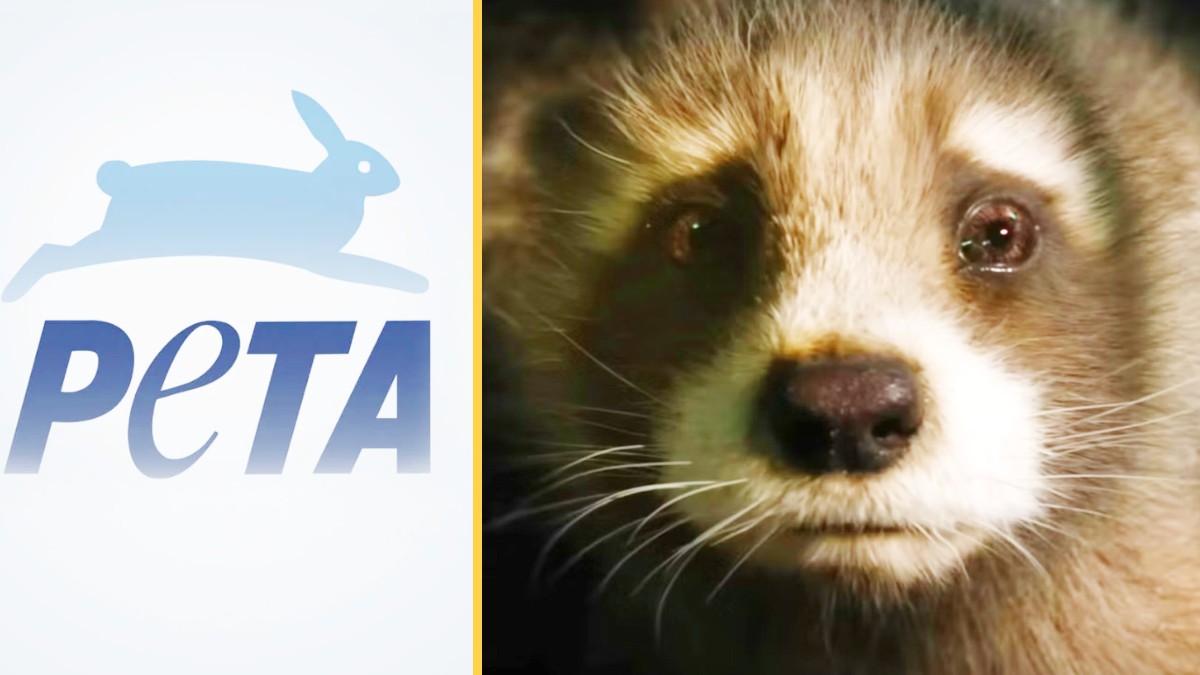Warning: This article contains mentions of animal cruelty that might be disturbing for some readers. Please read with care.
Though Guardians of the Galaxy Vol. 3 is being majorly praised for dragging the Marvel Cinematic Universe from the brink of oblivion, it has attracted some criticism for heavily indulging in presenting scenes depicting animal cruelty. And while it is a good thing that many have stood up to defend how the same was necessary to set the film’s tone and its message as well as was dealt with fairness and tact, PETA joining its list of well-wishers is the last thing the film needs.
In one of its rare film reviews, PETA has lauded Vol. 3 for “exposing the evils of animal testing” and shared how impressed they are by the film, whose story is “about having empathy for all living, feeling beings.” The review details how the plot of animal testing in the film starkly represents the harrowing truth of the real world where animals are subjected to similar inhuman treatment in laboratories. What PETA particularly loves is how the sequel “imagines a future when animals can live in peace – one PETA is actively working toward by promoting animal-free research methods that will actually result in treatments and cures for human diseases.”
This would have been one moving review if not for the fact that PETA, one of the most prominent animal rights organizations out there, has killed over 40,000 animals in its care since 1998.
As revealed by a Virginia state investigator in 2010 — who inspected PETA’s animal shelter in Virginia — “the facility does not contain sufficient animal enclosures to routinely house the number of animals annually reported as taken into custody.” Why, you ask? Well, the scary reason is the fact that 84 percent of the animals the organization took in were not kept for long and were killed within 24 hours.
What justifiably horrifies many is seen as a compassionate act by PETA, whose attempts at getting animals adopted have steadily dropped as the years passed. In fact, the organization doesn’t even believe in the concept of pets. According to PETA president Ingrid Newkirk, keeping pets is “an abysmal situation.”
“If people want toys, they should buy inanimate objects. If they want companionship, they should seek it with their own kind,” she said, adding, “In the end, I think it would be lovely if we stopped this whole notion of pets altogether.”
This troubling notion was once again broached by Newkirk in a 2014 interview with The Washington Post, where she stressed that outdoor cats are better off dead as then they can avoid a hypothetical future where they may suffer from an illness or contract an illness or be hit by a car.
This is in line with PETA’s openly-accepted principle that animals don’t have the right to live, something that Nathan Winograd, an activist who is an ardent supporter and leader of the No Kill movement, received in the form of a postcard from Newkirk.
“We do not advocate ‘right to life’ for animals.”
So — quite understandably — PETA’s support for Guardians of the Galaxy Vol. 3 rubbed many the wrong way.
It is also very much possible that this horrifying mentality of PETA doesn’t end with euthanizing perfectly healthy animals that have been voluntarily admitted into its shelters.
Back in 2015, a Virginian newspaper published a full-page advertisement stating that PETA workers had kidnapped a family’s dog when they were not home and killed her. The owners of the dog, a chihuahua by the name of Maya, sued the organization, thus forcing PETA — who called the incident a “terrible mistake” — to settle the case in 2017 by paying Maya’s family $49,000.
Given PETA’s history and its customized definition of “mercy” killings, we have to say it rushing to support James Gunn’s hard work and his heartfelt depiction of animal cruelty is not doing the film any favors.
[UPDATE 5/11/23]: PETA Senior Vice President Colleen O’Brien has responded to this article:
“As this video explores, the majority of animals brought into PETA’s care are spayed or neutered, provided with veterinary treatment, or otherwise cared for before being returned to their guardians. When adoptable animals come our way, we find them excellent homes or transfer them to high-traffic shelters for the best chance at finding a loving home. PETA also provides end-of-life services for people who can’t afford to pay for their sick and dying animals to be put to sleep, as well as for animals who are elderly, feral, sick, suffering, dying, aggressive, or otherwise unadoptable.
And unlike shelters with so-called “no-kill” policies, we take in all animals without discrimination, admission fees, appointments, waiting lists, or other obstacles, and we operate 24 hours a day, seven days a week. With around 70 million homeless dogs and cats in the U.S. at any given time, we urge shelters to accept all animals in need, ask people to adopt instead of buying from breeders or pet stores—as many of us at PETA have made adopted animals part of our families—and promote responsible animal guardianship, which includes spaying and neutering. For more information and to see the animals PETA helps, visit PETASaves.com.”

